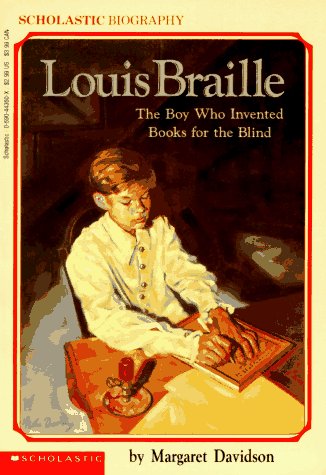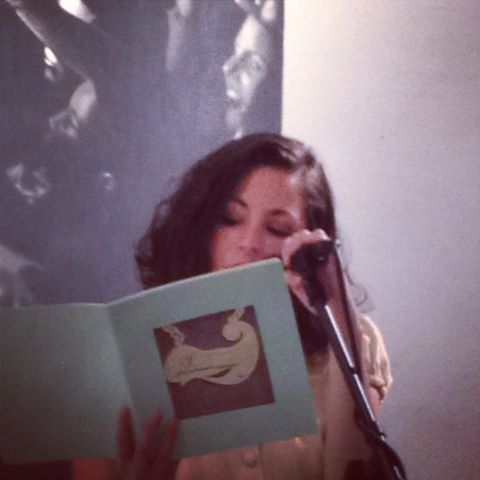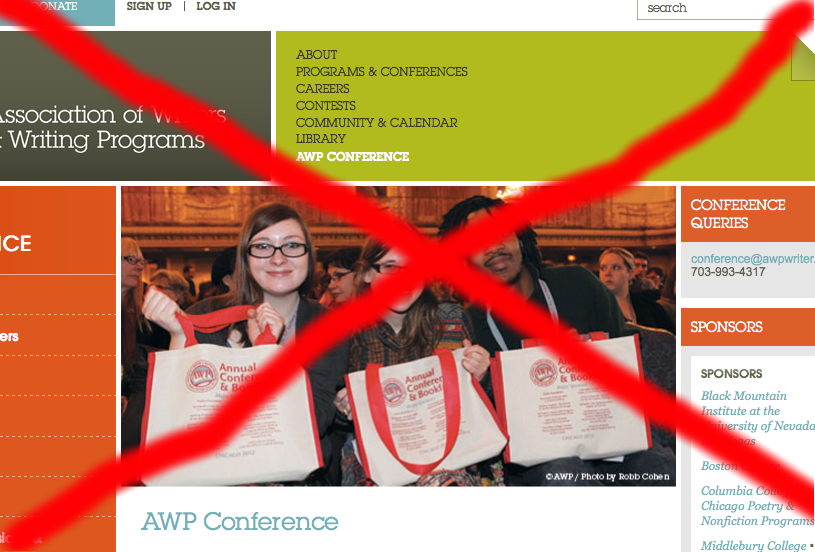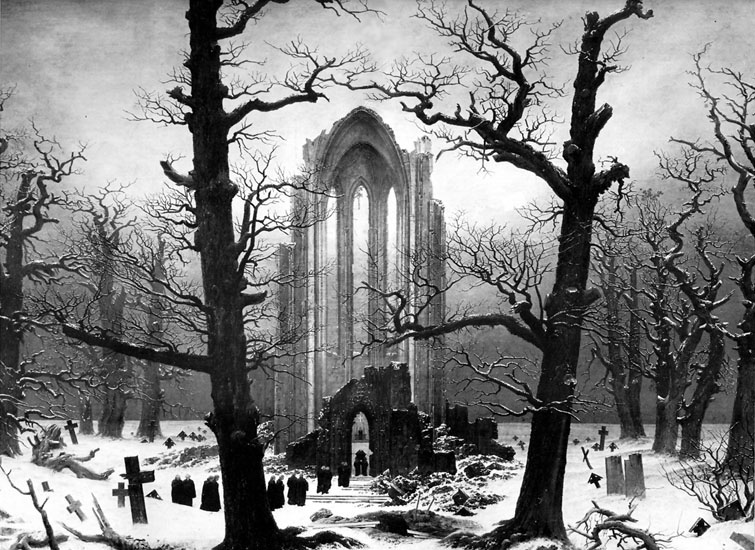Dress Up with the Contagious Knives
Besides possessing a really pretty first name, Joyelle McSweeney has earned a place as one of the top three poets presently (the other two are Ariana Reines and Chelsey Minnis). Totalitarian, deathy, and melodious, Joyelle has composed a Hunger Games-like novel, an essay about Ronald Regan, and a play, the Contagious Knives, that’s rich in rancor and in rhymes.
The Contagious Knives displays the diction of a nimble rapper and the pitch of an impassioned preacher. As the play’s hero, Louis Braille, tells Bradly Manning, “No indian giving, no taking it back, / except when you take it from me, / Indian, Chinaman, Brad-lee.”
Obviously, Joyelle needs no help decking her characters. Louis’s costume consists of pink panties, a Target t-shirt, a Victorian sailor suit, liquid eyeliner, and more. But what if it was required to dress the Contagious Knives’s characters in designer labels for a French Vogue editorial? What would they wear then? Well, maybe they’d trot out on stage in these things:
Boastful, sassy, and violent, Joyelle’s Louis Braille is a boy for boys to admire. Some of Louis’s first lines are: “I’m a very special cunt. / A very special fucking cunt. That’s what daddy always said / (wink wink).” Not humble about inventing his eponymous language for blind boys and girls, Louis likens himself to napalm and hints at an affiliation with Nazis by repeating “Not see!” four times in a row.
December 12th, 2013 / 1:13 pm
Monica McClure’s Mood Swing Book Party
Last nighttime I was in Lena Dunham Land, which I don’t like in the least, as 99 percent of the people who reside there claim to make poems, and these people who claim to make poems are nice, sociable, and happy. They would never use chemical weapons, nor would they ever vote to shut down the United States government, and all of that, to me, is utterly unacceptable.
But what’s very acceptable is Monica McClure. The poetess beauty (who, one day, will make a marvelous malicious housewife in Connecticut) hosted a party for her chapbook Mood Swing. In black tights and a Mandate of Heaven play suit, Monica read mean poems, harmful poems, and, since she’s a girl, poems about Diet Coke and makeup.
The edibles served at the reading included Skittles, which are yummy.
The reading was held at Berl’s Poetry Shop.
This, too, I approve of, as it permits one to purchase collections of poetry right away, such as Carina Finn’s Lemonworld, Chelsey Minnis’s Bad Bad, and certain ones authored by T.S. Eliot
23 More People Who Made Me Care About Poetry in 2013 (From One of the Million People Who Will Make You Care About Poetry in 2013)

When I first moved to Manhattan in 2008, I roughly knew about three people in the entire city. I lived in a bedbug-infested apartment on 139th Street with a sugar baby, a Bubba Gump Shrimp waiter, and a digital retoucher. At the time, I thought I was going to work as an assistant in photo studios while applying to MFA programs on the side—a plan that ended up completely shifting (no MFA, au revoir photo world)—but that’s not what I’m here to write about. I knew nothing of the NYC literary world, especially that of poetry. One day I had wandered into a library near 103rd to check out some familiar books. I saw a flyer for POETRY DISCUSSION GROUP / TONIGHT’S THEME: DEATH and hung around, hoping to meet some poets. And talk about death, of course.
What I ended up was sitting in a circle with about a dozen people, myself the only person under 60. As one cantankerous woman pointed out—most of them were “sitting in god’s waiting room” & it was “foolish to romanticize death”. This lead to a shouting match between attendees. So there I sat, hands in lap, in a coven of curmudgeons, horribly embarrassed at how much I misgauged what I thought I would be participating in. This is not to say that these old folks couldn’t have schooled me. I perhaps have never witnessed a more intensely personal discussion of death with any group of strangers in such a short amount of time in such a public space. But my point is that geography is a strange creature, containing wheels inside wheels. I wanted to meet young poets in their early 20s who would show me who they were reading, where they were reading at, where they hung out. This Upper West Side library, much to my ignorance, was not that place. I didn’t find that niche for a long time, even though we all lived inside the same city. It took many misguided open mics and weird basement readings to find the people I wanted to be around.
In some ways, I’d say this year is the first year I’ve been asked to read at series that I didn’t have to creepily solicit (although I still creepily solicit). It wasn’t until my first chapbook came out last fall that people gradually stopped introducing me as “that guy who runs Moonshot“. Every day is baby steps, is one poem after the other. I think it’s important to highlight these gooey ‘writer journeys’ we hear about over and over again to show how people find their way to meeting writers and literary scenes they care about. It’s hard when you’re on the outside and suspect others are members of a literary cabal who are only interested in helping each other out. I’ve been there. I’m still there, in many ways. Not everyone who lives in NYC is geographically self-obsessed or entitled or had everything fall into their lap instantly. Does this even need to be said? It took five years just to reach a point where the lit projects I’ve started here (or been involved with) have been around long enough where it people come up to me and say they know who I am, what I do. It hasn’t gotten less jarring yet—maybe one day it will.
Perhaps this is why it’s equally surprising to find myself on a list called 23 People Who Will Make You Care About Poetry in 2013. It’s even stranger to watch people—in response to this list—echo criticisms I’ve made of NYC’s poetry scene—white, exclusive, cliquey, centered around itself. Except, in this case, I was included on an exclusionary list. I’m now that person. Numbered lists are incredibly tricky to begin with because they seem so incredibly final, as if there are no others. Here are the 23 chosen ones. There is a glib part of me that wants to say we should take these kinds of lists with a grain of salt, that wants to point out that media sites have to churn out dozens of these insipid listicles per day—but I know that will incise—and I recognize that it’s my privilege that would allow me such flippancy.
The AWP Should Stand For Something Very Vulgar Because It Is Very Vulgar
There shouldn’t be an AWP. There should only be one if it would result in me meeting Gina Abelkop. She is the publisher of Birds of Lace, a press that publishes books about girl groups, adventurous twins, and girls who justify murder in high school essays. Most Birds of Lace books fulfill one of the primary attributes of literature: They transmute the reader to magical, mysterious worlds of death, babysitters, and big hair. Gina and I could meet for tea (or vanilla cupcakes). We could discuss trenchant topics, like the veils in Meadham Kirchoff’s Fall 13 collection or Disney princesses. Why, we could even mosey to a Disney store (if there are Disney stores in Boston) and she could purchase an Ariel doll (because she’s a girl) and I could purchase a Buzz Lightyear doll (because I’m a boy). It’d all be rather idyllic. But according to the grapevine Gina won’t be attending this year. So I won’t either, which is fine, since the AWP is as disgusting as gay people, straight people, bisexual people, and Brooklyn.
On their site, the AWP claims to be “the largest literary conference in North America.” But the AWP has little relation to literature. Only around one percent of the attendees make literature. There’s just a tiny fraction who formulate texts that are monstrous and divine – that, like those German boys, possess the grit and glamour to wage war on basically everyone on the globe. As for the rest – the 99 percent of AWP people – they are not poets and they are not composing literature. They are not concerned with epic Emily Bronte or moody Frank O’Hara. They are a product of typical middle class capitalism, or, as Karl Marx says, “the bourgeois.” According to Karl, the bourgeois live off others’ labor. They acquire value through accumulation. As the bourgeois stockpile products their worth increases. This renders them reliable upon the proletariat who must toil night and day with very little rest to keep up with the insatiable, indiscriminate bourgeois.




